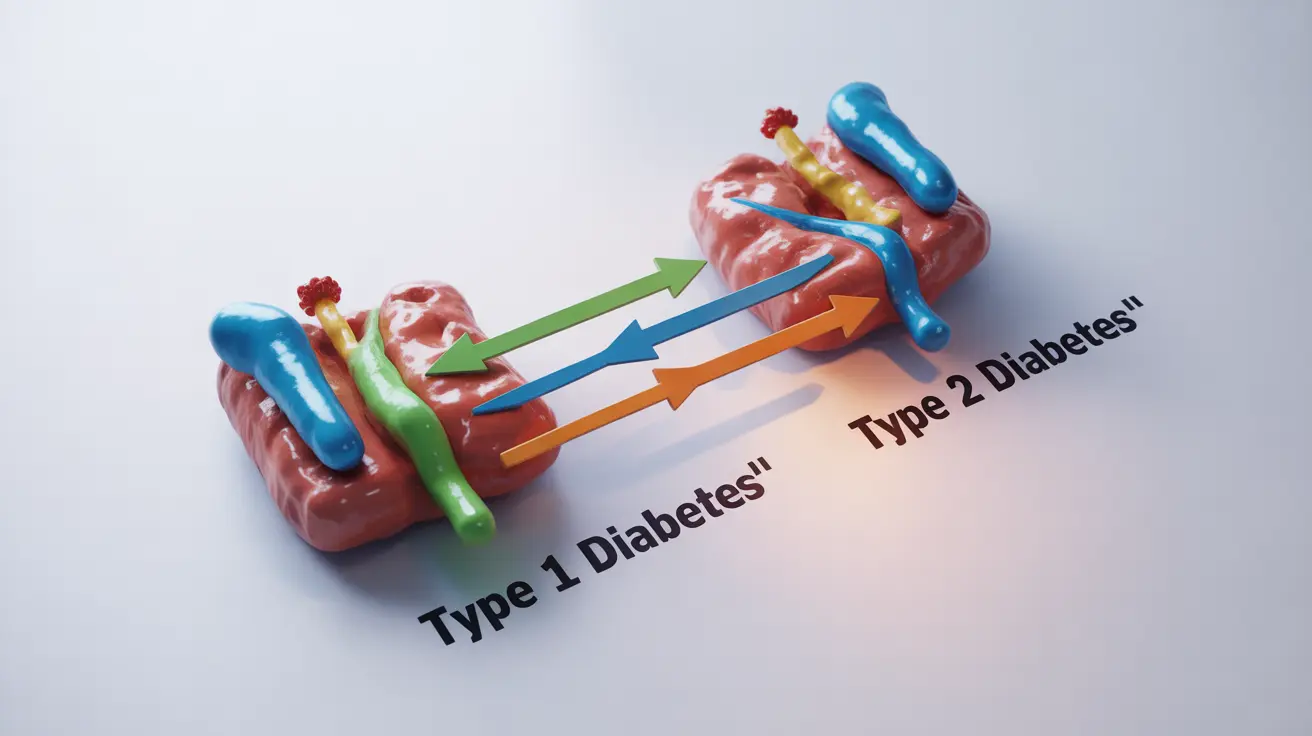Understanding whether you have type 1 or type 2 diabetes is crucial for proper treatment and management. While these conditions share some similarities, they have distinct causes, symptoms, and treatment approaches. This comprehensive guide will help you understand the key differences between these two types of diabetes and how medical professionals diagnose them.
Understanding the Basic Differences
Type 1 and type 2 diabetes affect how your body processes glucose, but they do so in fundamentally different ways. Type 1 is an autoimmune condition where the body attacks insulin-producing cells, while type 2 develops when the body becomes resistant to insulin or doesn't produce enough of it.
Distinctive Symptoms and Onset
Type 1 Diabetes Symptoms
- Sudden and severe symptoms
- Rapid weight loss
- Extreme thirst and frequent urination
- Sudden vision changes
- Often develops in childhood or early adulthood
Type 2 Diabetes Symptoms
- Gradual onset of symptoms
- Slow weight gain or obesity
- Increased hunger and fatigue
- Slow-healing wounds
- More common in adults over 45
Causes and Risk Factors
Type 1 Diabetes Causes
- Genetic predisposition
- Environmental triggers
- Autoimmune response
- No direct lifestyle connection
Type 2 Diabetes Risk Factors
- Family history
- Obesity or being overweight
- Sedentary lifestyle
- Poor diet choices
- Age over 45
- History of gestational diabetes
Diagnostic Process
Doctors use several tests to determine which type of diabetes you have:
- Fasting Blood Sugar Test
- A1C Test
- Random Blood Sugar Test
- Antibody Tests (specifically for type 1)
- C-peptide Test
Treatment Approaches
Type 1 Diabetes Treatment
- Daily insulin administration
- Blood sugar monitoring
- Carbohydrate counting
- Regular exercise
Type 2 Diabetes Treatment
- Lifestyle modifications
- Oral medications
- Sometimes insulin therapy
- Diet and exercise plans
- Weight management
Frequently Asked Questions
How can I tell if I have type 1 diabetes or type 2 diabetes based on my symptoms?
Type 1 diabetes typically develops rapidly with severe symptoms like sudden weight loss, extreme thirst, and frequent urination. Type 2 diabetes usually develops gradually with subtle symptoms like increased fatigue, slow-healing wounds, and gradual weight gain. However, only proper medical testing can confirm the specific type.
What causes type 1 diabetes and how is it different from type 2 diabetes?
Type 1 diabetes is an autoimmune condition where the body attacks and destroys insulin-producing cells in the pancreas. Type 2 diabetes develops when the body becomes resistant to insulin or doesn't produce enough insulin. Type 1 is not preventable, while type 2 is often linked to lifestyle factors.
What are the common risk factors that increase my chance of developing type 2 diabetes?
The main risk factors for type 2 diabetes include being overweight or obese, physical inactivity, poor diet, family history of diabetes, age over 45, and certain ethnicities. Previous gestational diabetes and high blood pressure also increase risk.
What tests do doctors use to diagnose whether I have type 1 or type 2 diabetes?
Doctors typically use a combination of tests including fasting blood sugar tests, A1C tests, and random blood sugar tests. For type 1 specifically, they may also check for certain antibodies and C-peptide levels to confirm the diagnosis.
How are the treatments different for type 1 diabetes compared to type 2 diabetes?
Type 1 diabetes always requires insulin therapy through injections or an insulin pump, along with careful blood sugar monitoring. Type 2 diabetes may be managed through lifestyle changes, oral medications, and sometimes insulin therapy if needed. The treatment approach for type 2 is typically more gradual and can often start with diet and exercise modifications.




